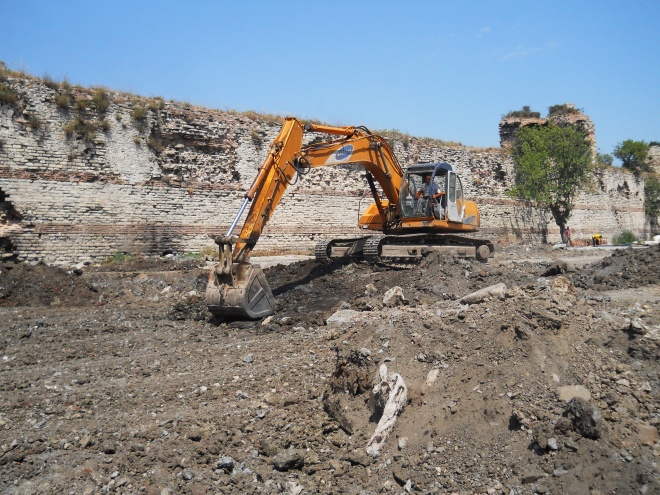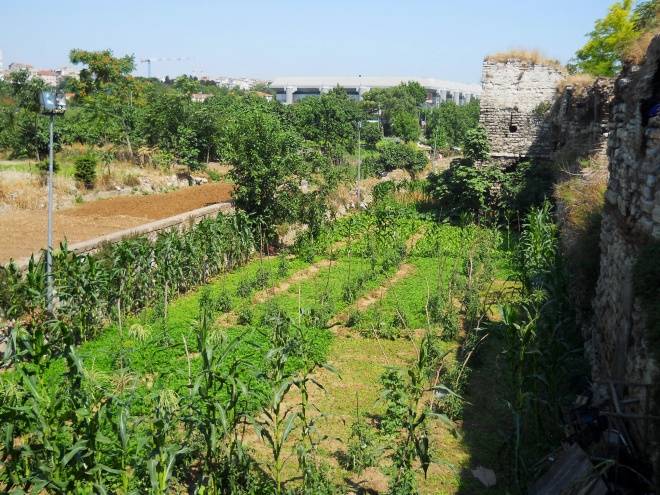Urban farming and gardening is as old as civilization itself. The ancient hanging gardens of Babylon helped inspire the water farming known as hydroponics (see how it’s evolved into artificial intelligence). Historic major cities, such as the Byzantine city of Constantinople, which later became Istanbul, were planting urban gardens to help feed inhabitants during times of famine and warfare.
Istanbul’s historical market gardens, known as bostan, were known for providing fresh garden produce for Turkey’s largest city for hundreds of years. These market gardens were located inside city walls, and the produce grown there helped feed hundreds of thousands of people.
Modern construction and population growth has resulted in most of these gardens being doomed for destruction to make way for planned building projects.
The bostan gardens in the Yedikule quarter have more recently been rented by immigrants and others to provide an income for themselves and their families. Istanbul’s metro population, which now is more than 15 million, is simply running out of space.

“The bostan in Yedikule are one of the first forerunners to what we today term urban farming,” says Aslihan Demirtas, an Istanbul-based architect. The Istanbul municipality wants to remove these garden plots in order to provide room to construct a large 90,000 square meter park. Doing so will destroy the incomes of people who came from rural locations and have no other means of making a living. “If you throw me out onto the street, what am I going to do to make a living,” says a 53-year-old bostan farmer.
Police recently entered some of last garden plot areas and told the people renting them that they only have until the “next harvest” to continue farming there. This will end a farming tradition that goes back more than 1,500 years. The gardens which lay along the ancient city walls, until recently have been a UNESCO protected site.
The approaching end of Istanbul’s bostan urban farming does not mean that urban farming is doomed, however. Inhabitants on other major urban locations, ranging from New York City’s Brooklyn based Gotham Greens to urban agriculture movements in Cairo Egypt, indicate that urban farming projects are alive and well.
Read more on urban farming movements and projects:
Join the urban farming movement
Brooklyn’s Gotham Greens builds world’s larget urban rooftop farm
Hanging gardens of Babylon inspire water farming called hydroponics
Egypt’s urban agriculture movement is growing
Photos of Yedikule garden plots Jennifer Hattam




